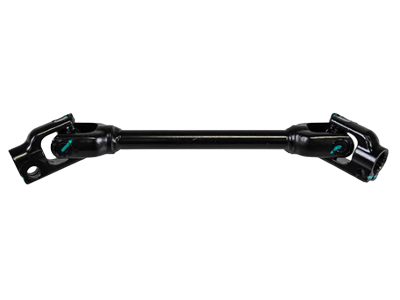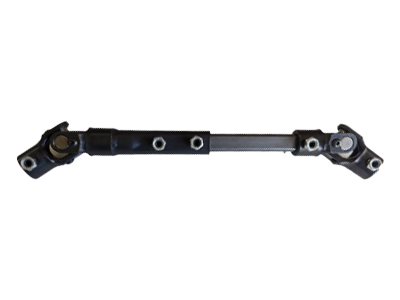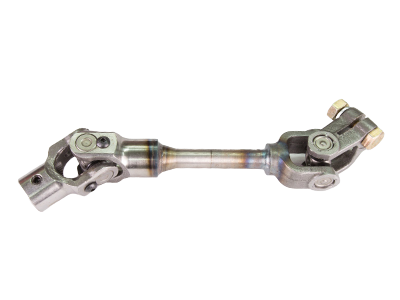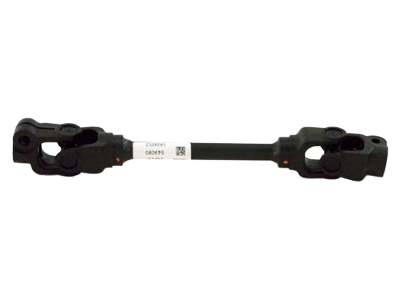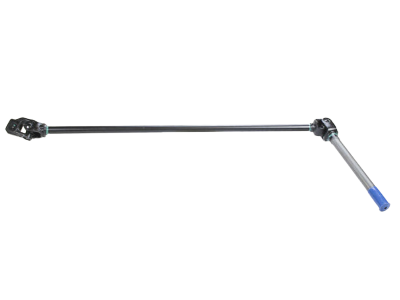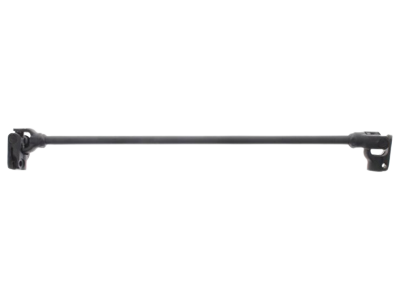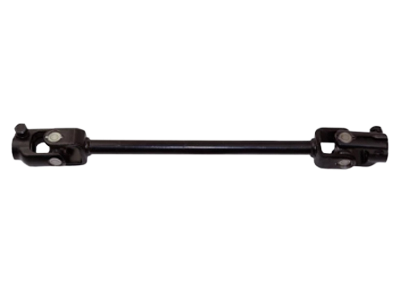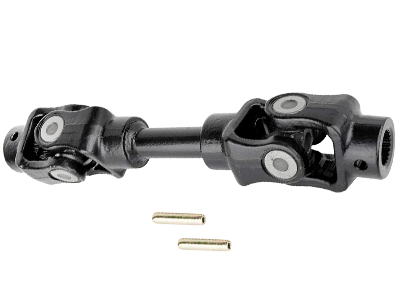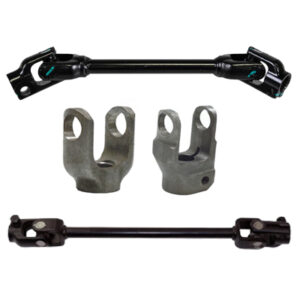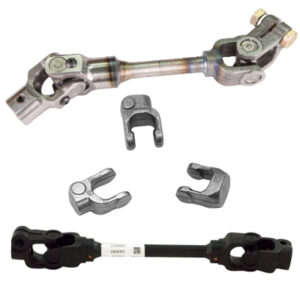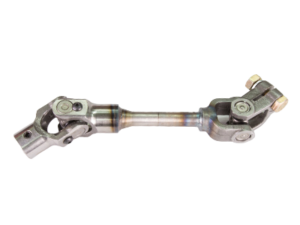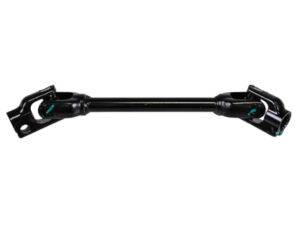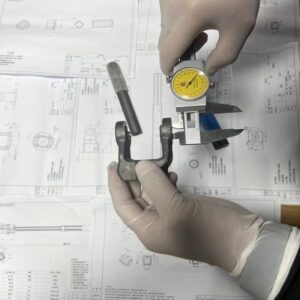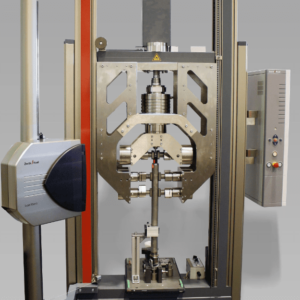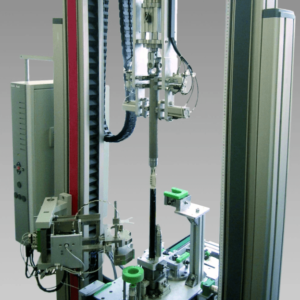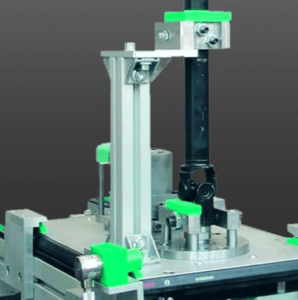Trusted UTV Steering Shaft Factory
"JIUREN AUTO PARTNER" Company Overview
Yuhuan Jiuren Machinery Co., Ltd was founded in 2008 and is a professional manufacturer of steering shafts, drive shafts, and axle shafts. Specialized solutions for cars, trucks, agricultural machinery, and UTVs.
We provide OEM, ODM, and custom services; our products are mainly exported to the USA, Canada, Mexico, Brazil, Argentina, Peru, Australia, New Zealand, Germany, France, the UK, Italy, Netherlands, Poland, Russia, Ukraine, Spain, Hungary, Turkey, Saudi Arabia, Malaysia, Thailand, etc.
In the automotive field, our producta are mainly for Toyota, Honda, Nissan, Mitsubishi, Lexus, Suzuki, Isuzu, Mazda, Daihatsu, Subaru, Infiniti, Mercedes-Benz, BMW, Audi, Volkswagen, Volvo, Porsche, Jeep, Ford, Lincoln, Dodge, Chevrolet, Buick, Cadillac, Chrysler, Hummer, GM, Kia, Hyundai, Land Rover, Jaguar, Renault, Fiat, Peugeot, Opel, Lada, UAZ.
In the truck field, our products are mainly for Mercedes-Benz, Scania, Volvo, Iveco, DAF, Volkswagen, Ford, dump trucks, Basculantes, etc.
In the agricultural machinery field, our products are mainly for John Deere, Case IH, Kubota, New Holland, etc. In the UTV field, our products are mainly for Polaris and Can-Am. Etc.
Featured UTV Steering Shaft in The Market
All You Need to Know About UTV Steering Shaft
What is a UTV Steering Shaft?
- A UTV steering shaft is a part of the UTV (utility terrain vehicle) that connects the steering wheel to the UTV’s suspension and brakes.
- It helps to transfer the driver’s input from the steering wheel through the UTV frame, allowing them to control where they want their UTV to go.
- The UTV steering shaft is critical for accurate direction and maneuverability when driving an off-road vehicle, as it can be adjusted depending on specific terrain conditions.
- UTV steering shafts come in varying lengths and diameters, but all are designed to allow a smooth power transmission from the steering column down into the suspension system.
- UTVs with four-wheel drive typically have two UTV steering shafts, while UTVs with two-wheel purpose usually have only one.
- UTV steering shafts are essential for off-road driving, helping you control your UTV with precision and accuracy.
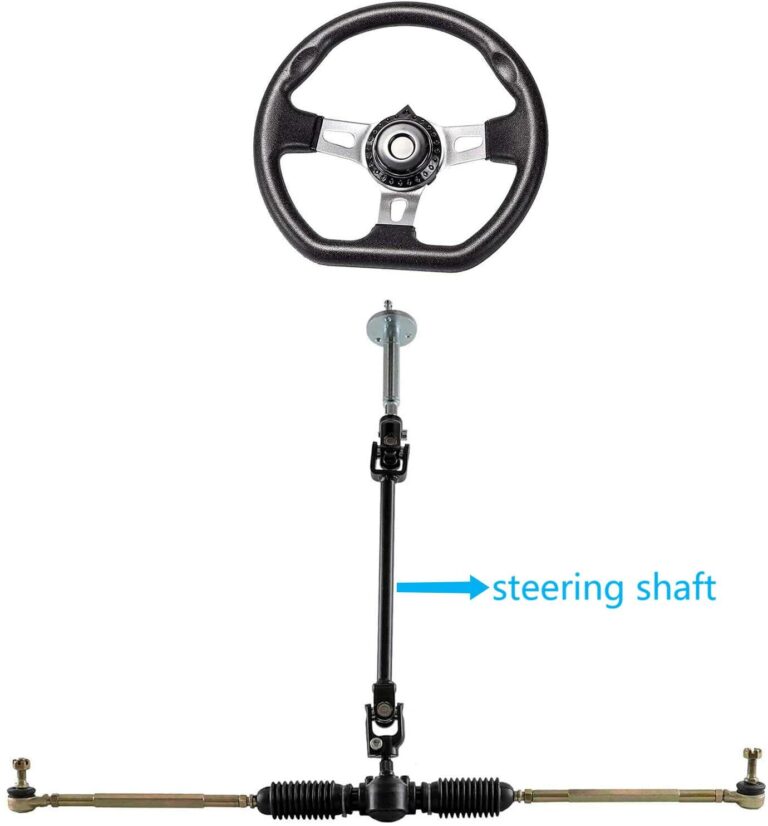
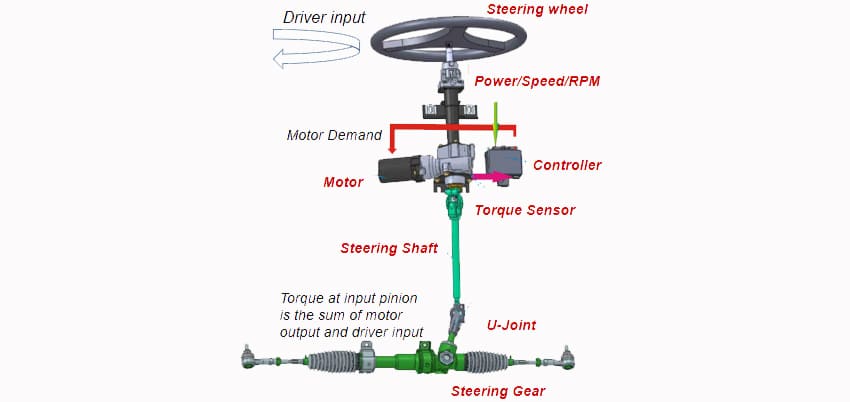
What does the UTV Steering Shaft Use for?
- The UTV steering shaft is an integral component in UTVs, responsible for providing the driving force to turn the UTV’s wheels.
- The UTV steering shaft transmits the driver’s steering input from the steering wheel to the UTV’s front wheels and allows them to turn at different angles as needed.
- This further enables smooth steering movement and handling of a UTV when navigating the terrain.
- The UTV steering shaft also helps maintain vehicle stability and reduce wear on other components due to its dampening properties.
- In short, it is necessary for proper control and maneuverability of a UTV.
- In addition, having a reliable UTV steering shaft can ensure safe operation while driving off-road or in farming areas. Therefore, it is essential to inspect UTV steering shafts periodically and replace worn or damaged components as needed.
What Parts Make Up the UTV Steering Shaft?
The following are UTV steering shaft components and the materials typically used for each element.
01. Spline yoke – Usually, the head bore has splines to connect other parts; this yoke is forged, or cold extruded, and the material is 45#.
02. Universal joint – It is one of the essential parts of the steering column. It provides a flexible mechanical connection between two parts, allowing them to move around each other while transmitting torque. This connection creates a more efficient and reliable power transfer over an extended distance than traditional rigid methods.

- The body material is 20Cr; roughs are usually forged or cold extruded.
- The needle-bearing material is GCr15.
- The bearing cup material is 20#.
- The grease seal material is NBR.
- The snap spring material is 65Mn.
03. Weld yoke – This yoke is forged or cold extruded; it will weld on the shaft. The material is 45#.
04. Shaft – The shaft material is 40Cr.
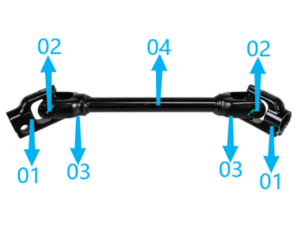
What are the Technical Standards for Each Component?
The following are the technical requirement standards for each UTV steering shaft component.
01. Spline yoke and weld yoke – The torque requirement is 200 Nm, so it has high requirements for the rough, which has to be forged or cold extruded. Our yoke torque can generally reach over 300 Nm.
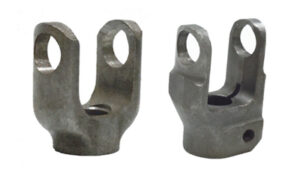
02. Universal joint clearance – Universal joint clearance requirement is less than 0.03-0.05mm. Our universal joints are made of the “Wanxiang” brand, and the support is generally lower than 0.02mm.
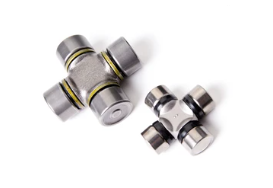
03. Screws and nuts – Screws and nuts are also essential parts, screws require 10.9 class strength screws, and nuts require 8 class strength nuts. Screws and nuts require a torque of 120 Nm or more after locking. Our screws use class 10.9, and our nuts use class 8. The torque can generally reach 150 Nm or more after locking.
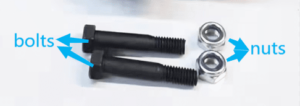
What Are The Types of UTV Steering Shafts?
The following is a classification of UTV steering shafts according to the type of yoke roughs.
Extruded Steel Yoke
t is divided into two kinds of warm extrusion and cold extrusion; the surface of this kind of yoke is smooth, beautiful appearance, material density, and use performance are higher, so it is now more and more popular.
Forged Steel Yoke
Forged yokes are also widely used in UTV steering shafts.
Because it has the highest material density, the best torque performance, is wear-resistant and durable, and is not easy to deform.
How Many Types of Surface Treatments for UTV Steering Shaft?
Neutral Color
Neutral color is not used much in the UTV steering shaft; although the product’s surface is coated with anti-rust oil before leaving the factory, the anti-rust time is not long.
Electrophoresis
Electrodeposition is characterized by strong adhesion, a smooth and shiny surface, and not easy to scratch when bumped.
But it can only do black; no other color options.
How to See The UTV Steering Shaft Quality?
1. Check the appearance
Check the surface treatment for defects, bumps, or rust, then check the finish of the machined surface.
2. Check the burrs
Check the screw holes and keyways for uncleaned burrs, and this detail is something many small factories will overlook.
3. Check the universal joint
Check whether the universal joint grease seal has ruptured; the universal joint is one of the essential parts of the steering shaft column; if the grease seal ruptures, it will lead to the overflow of lubricating grease inside the bearing cup and the dirt and dust outside into the universal joint, which will lead to the life of the universal joint is significantly shortened.
4. Turning universal joint
Check whether the rotation is smooth; if there is a jam, the steering joint will have a strange sound in the process of use; feel whether there is a gap in the universal joint during the rotation Universal joint if there is a gap, the steering wheel will have a gap after the product is installed, which will affect the precision of the steering wheel rotation, resulting in increased driving danger.
5. Check the telescoping function
With the telescopic steering shaft column to do axial stretching to see whether the expansion and contraction are smooth, if the extension has a jam, it will affect the product’s performance after installation.
6. Check the clearance
The steering shaft column with telescoping also has to do the lateral clearance test; the spline shaft and shaft tube will be twisted backward by hand to see if there is a gap. Average clearance needs to be less than 0.05mm, such as too much clearance, the product will have a strange noise after installation and will affect the precision of the steering wheel rotation.
7. Check the nylon coating
Nylon coating is an essential component in controlling the clearance of the steering shaft column assembly, and it increases the wear and corrosion resistance of the shaft. Check to see if the coating is even and firm and if there are any damaged areas.
8. Check the length
Measure the correct size of the product, and for the steering shaft column with telescoping, measure the right size in tension and compression.
9. Check the dimensions
Measure the mounting position dimensions, including the diameter of the inner and outer spline, the number of teeth, the spline parameters, and the angle of the mounting position at both ends are correct.
10. Check the welding
Check whether the weld is solid, there is no crack or false welding, and the steering shaft column is a safety part; if welding problems, the use of safety accidents.
11. Check the rubber parts
Check whether the rubber parts are broken.
12. Check other accessories
Check whether other accessories are complete, such as screws, nuts, gaskets, and other accessories.
What are the Most Common Problems that Occur with UTV Steering Shafts?
1. The universal joint quality is too poor to cause various problems.
For example, the universal joint clearance is too large, which causes the steering wheel to have a false position and is not sensitive.
The universal joint does not fit smoothly, and there is a snag in the rotation; this can lead to jerky and uneven steering.
Poor quality of the universal joint grease seal, resulting in grease leakage, will significantly reduce the service life of the steering shaft.
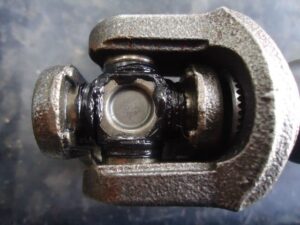
2. Spline parameter error.
For steering shaftS, spline parameters are critical. The product will not be installed and used if the spline is wrong.
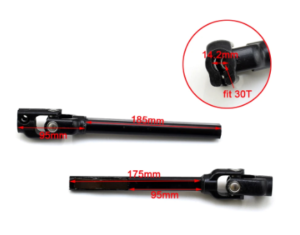
What is our Solution?
For these problems, we offer the perfect solution.
1. We use the world’s best brand “Wanxiang” for universal joints, the best supplier globally.
The gap in the universal joint, jamming, and grease seal leakage can be avoided entirely.

2. To address the problem that spline parameters are prone to errors, we have made unique spline through gauges for each spline specification and bore. Make sure every spline is thoroughly inspected to avoid any wrong product in your hand.
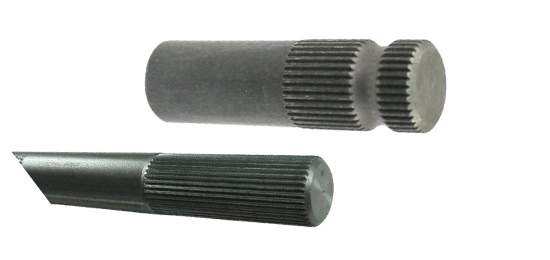
Production Process of The Steering Shaft For UTV
Here is the production process of UTV steering shafts to let you know how they are made.
- 1 . Make a drawing.
Draw the drawing according to the OE sample.
- 2. Make the mold.
Make the mold of the yokes.
- 3. Produce roughs.
Forging or casting the roughs.
- 4. Make the machining.
Machining of these steel parts, turning, drilling and milling.
- 5. Make the spline.
Machining splines.
- 6. Produce the shaft and tube.
Produce the shaft and tube by cold rolling process.
- 7. Heat treatment.
Heat treatment of these parts through different processes.
- 8. Make the nylon coating.
Make the shaft or tube with nylon coating.
- 9. Make the welding.
Weld the shaft with a weld yoke, and weld the tube with a weld yoke.
- 10. Assemble.
Assemble all parts; we buy u joint from “Wanxiang,” the No. 1 brand in the world.
- 11. Make the surface treatment.
Different surface treatments for products according to other products and customer requirements. Painting, electrophoresis, phosphating, galvanizing, zinc-nickel alloy, natural color, etc.
- 12. Laser mark.
Laser mark your logo on the steering joint and coupling surface.
- 13. Packaging.
Bagging and packing them.
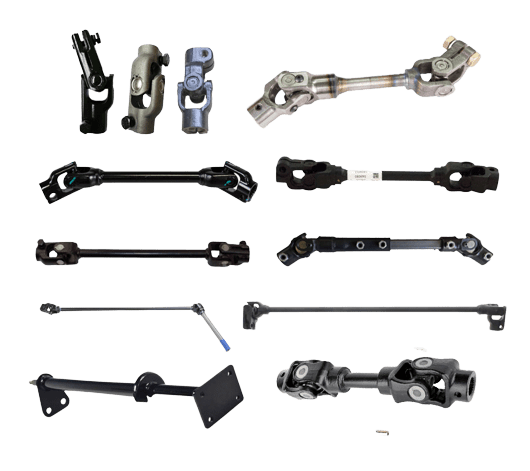
Inspection Process of UTV Steering Shaft
- 1. Roughs inspection.
Every rough will be inspected before machining to avoid any defective and missing roughs in the following process.
- 2. Machined parts inspection.
Each machined part will be fully inspected, first by the supervisor of the first inspection, then by the production line workers each full inspection; the inspector will also regularly perform random checks; once found that there is a dimensional failure of the product, it must be immediately dealt with.
- 3. Nylon coating inspection.
Check whether the nylon coating is uniform and if there is no breakage in the place.
- 4. After surface treatment inspection.
Every part that has been surface treated must be thoroughly inspected, and any defective ones cannot flow into the following process.
- 5. Assembled parts inspection.
The workers will self-inspect each product during the assembly process, and the inspectors will also conduct random inspections at regular intervals. Mainly check whether there is clearance in the universal joint and whether there is clearance in the spline shaft and shaft tube fit.
- 6. Finished product inspection.
All finished products will be inspected individually, including checking the appearance and measuring the size, angle, and clearance.
- 7. Performance Testing.
A few randomly selected finished products to do performance testing. Mainly do static torsion test; the test results must reach 300NM or more. Next, do the gap fit test; the test result needs the gap to be less than 0.03mm. Finally, do the fatigue test 1 million times; the test result requires the product to be intact.
- 8. Package inspection.
Packaging is also a full inspection of each product, mainly to see whether the laser typing on the product, bags, boxes, labels, and markings meet customer requirements.
Steering Shaft Package
We offer two packaging models. The first is your branded packaging, and the second is neutral packaging. Whatever your packaging requirements, please let us know, and we’ll take care of it for you!
Brand Packing
- 1. Laser marking your logo on product.
- 2. Put the product in your branded colorful bag.
- 3. Put the bag into your branded colorful box.
- 4. Stick your brand label onto your box.
- 5. Put the boxes into your branded colorful carton.
- 6. Stick your shipping mark onto cartons.
- 7. Make the cartons to pallet or wooden box.
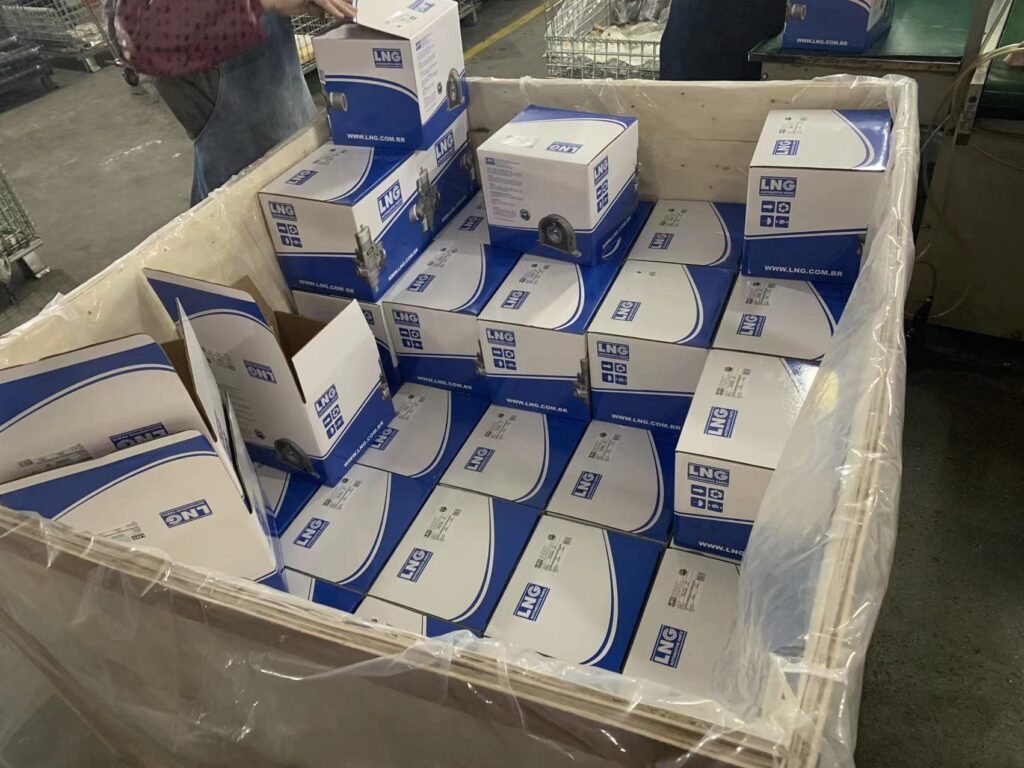
Neutral Packing
- 1. Put the product into white bag.
- 2. Put the bag into neutral brown box.
- 3. Stick neutral label onto box.
- 4. Put the boxes into neutral brown carton.
- 5. Stick your shipping mark onto cartons.
- 6. Make the cartons to pallet or wooden box.

What People are Saying About Us?



FAQ about Our Commercial Truck Steering Shaft Column
These are the most frequently asked questions. If you cannot find an answer here, please get in touch with us via email.
- Check whether the product pictures are consistent.
- Also, verify that the product OE or standard primary manufacturer number is correct.
- Then, check if the applicable model and year are accurate.
- Finally, check if the product length and mounting dimensions are correct.
- Accurate factory price, no intermediary.
- We have our forging plant, and we make all forging roughs ourselves, which means we have a more significant cost advantage than others.
We are a family business manufacturing located in Yuhuan city, China’s largest automotive chassis parts zone. There are tens of thousands of factories of automotive chassis parts here. So you can find any chassis parts here.
Usually, the minimum order quantity for the steering joint is 100 pcs, and for the steering shaft, the minimum order quantity is 50 pcs.
Yes, we offer free samples for your test.
All products from 1A Steering Shaft are covered with a 12 Months warranty from the date of installation or 18 Months warranty from the shipment date, whichever comes earlier.
We offer EXW, FOB, CFR, CIF, and Door to Door delivery terms.
- Pay 30% in advance and 70% before shipment by T.T.
- 100% payment before shipment by T.T.
- 100% payment aginst BL copy by T.T.
- 100% payment 30 days from shipping date by T.T.
All shipment products are documented, and we provide OEM services to many brands without any information about our manufacturer of the goods. Any drawings, operating instructions, test reports, etc., belong to the brand owner.
Usually, for old products, the lead time will be less than 45 days; for newly developed products, the lead time will be 60 days.
Yes, custom service is our leading service, tell us your requirements, and we’ll take care of the rest.
Yes, the brand colorful package service is our leading service; it contains laser marking your logo on the product surface or roughs, printing your brand colorful bag, printing your brand labels, make your brand colorful box and cartons.
Our brand-colorful package service is the perfect way to ensure your product stands out in the market. We offer a wide range of customizations that can help you get the most out of your product. Our team specializes in laser marking, which allows us to place your logo or design onto the surface of any product with precision and accuracy.
- Provide samples, and we will make drawings, or you can provide us with detailed production drawings.
- Then, make a mold and produce a few roughs.
- Produce pre-production samples and send them to you for confirmation.
- After your side approves the samples, we will start mass production.
- If you do not confirm the sample, we will make changes according to your requirements and resend the sample to you until you approve the sample.
- After the mass production, you can arrange for a third party to inspect the goods, or we will send you samples of large goods for your inspection.
- After you approve, we will ship your goods.
Who paid for the mold, and who owns the mold.
Send Us Your Inquiry Now!
Please fill out the form on the right to send us an inquiry. We always want to ensure that our customers get the best deal, so let us know what you’re interested in, and we’ll get back with a quote!

